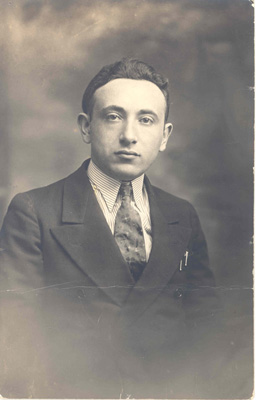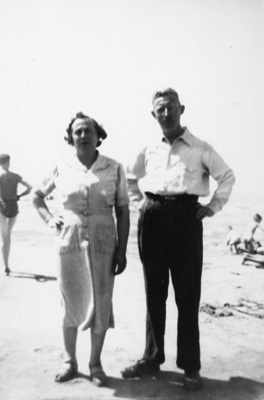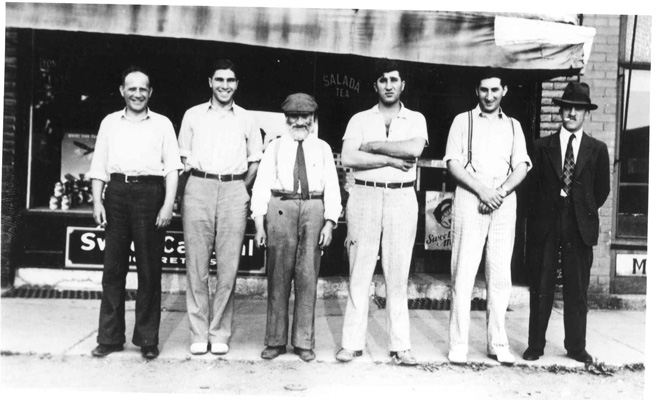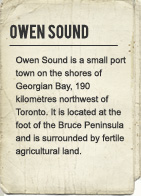Early Rabbis
Many young rabbis and teachers got their start in small communities and then moved on to better jobs in Toronto or southern cities. For instance, Hersh Sossinsky, a young Russian was hired by Owen Sound’s fledgling Jewish community as its first Hebrew teacher in 1903, ten years after a local newspaper recorded the first Jewish birth in the town. Sossinsky was responsible for leading services, teaching the children and acting as shochet for the community. He subsequently moved to Calgary in 1905. Another early rabbi was Isaac Orlinsky, who moved to Owen Sound in 1907. He and his wife Libe had their first child Ruby there. Soon after, they moved to Toronto where Orlinsky continued to raise his family and pursue his career. Rabbi Kirshenbaum was a distinguished rabbi and shochet, who served the Owen Sound community in the early-to-mid 1920s and then moved to London, Ontario, where he was rabbi of the synagogue there, starting in 1926.
After Orlinsky, a dozen different rabbis served the community up until recent years. Rabbi Israel Haberman was among the estimated 20,000 Jews who fled Hungary after the failed revolution of 1956. He arrived in Owen Sound in 1958 and stayed until 1962, serving as rabbi, cantor, baal tefillah, baal koreh and shochet. He was succeeded by Owen Sound’s last resident rabbi, H. Lasher, who only served from September of 1962 until July, 1963. By the mid-1960s, the congregation could not afford a full-time, resident rabbi. From this time forward, the community worked with part-time teachers and rabbis.
The pay scale for rabbis was initially modest. In 1947, Rabbi S. Walzer was hired for one year at $12.50 per week, in addition to free accommodation in the quarters above the synagogue. He was also entitled to charge members for killing chickens. In 1950, Rabbi Manfred Levison started at $25 a week. In 1954, Rabbi Klein received a $150 bonus at the High Holidays to supplement his salary of $45 per week. Rabbi Lasher, the last resident rabbi, started in 1962 at $60 a week.
In addition to paying the rabbis’ salaries, the Owen Sound community engaged men to chant the prayers for the High Holidays, starting in 1950. Cantors were paid varying amounts, between $150 to $300 during the mid-1950s.










